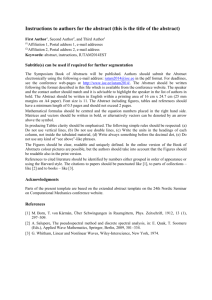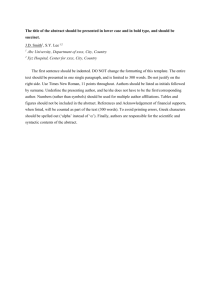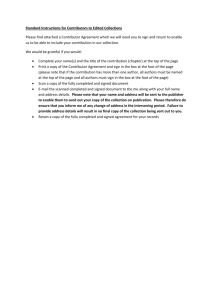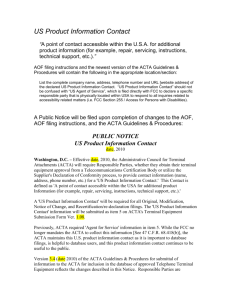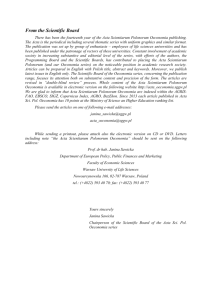Evelyn Dalton Professor Dziadek English 1302
advertisement
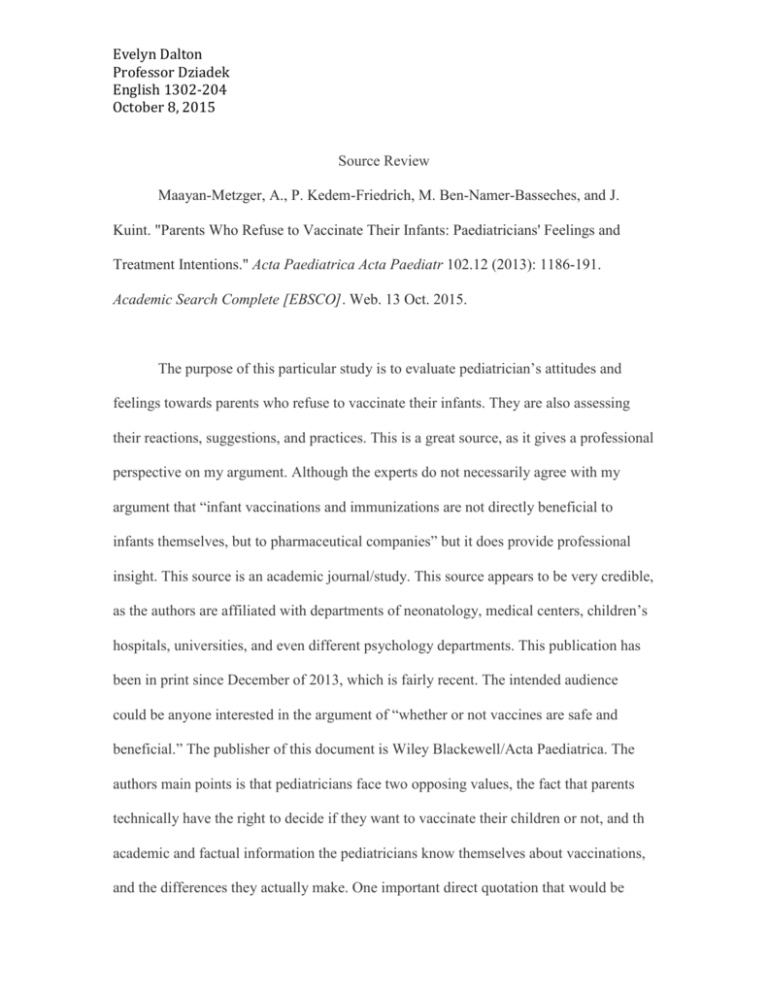
Evelyn Dalton Professor Dziadek English 1302-204 October 8, 2015 Source Review Maayan-Metzger, A., P. Kedem-Friedrich, M. Ben-Namer-Basseches, and J. Kuint. "Parents Who Refuse to Vaccinate Their Infants: Paediatricians' Feelings and Treatment Intentions." Acta Paediatrica Acta Paediatr 102.12 (2013): 1186-191. Academic Search Complete [EBSCO]. Web. 13 Oct. 2015. The purpose of this particular study is to evaluate pediatrician’s attitudes and feelings towards parents who refuse to vaccinate their infants. They are also assessing their reactions, suggestions, and practices. This is a great source, as it gives a professional perspective on my argument. Although the experts do not necessarily agree with my argument that “infant vaccinations and immunizations are not directly beneficial to infants themselves, but to pharmaceutical companies” but it does provide professional insight. This source is an academic journal/study. This source appears to be very credible, as the authors are affiliated with departments of neonatology, medical centers, children’s hospitals, universities, and even different psychology departments. This publication has been in print since December of 2013, which is fairly recent. The intended audience could be anyone interested in the argument of “whether or not vaccines are safe and beneficial.” The publisher of this document is Wiley Blackewell/Acta Paediatrica. The authors main points is that pediatricians face two opposing values, the fact that parents technically have the right to decide if they want to vaccinate their children or not, and th academic and factual information the pediatricians know themselves about vaccinations, and the differences they actually make. One important direct quotation that would be Evelyn Dalton Professor Dziadek English 1302-204 October 8, 2015 really useful to put into my paper would be “ Over the last decade, an increasing number of parents have refused to have their infants vaccinated. A number of studies have discovered multifactorial variables behind the reasons for refusal, involving ideology, levels of knowledge, attitudes, and emotions.” (Acta Paediatrica, Page 2) The author’s rhetoric in this article is very professional, yet easy to comprehend. This article appeals to a lot of pathos and logos, emotion and facts. The author is representing a professional perspective to the “Are vaccines safe and effective argument”, as they are scientific/medical professionals. The facts that might be getting left out are the perspectives of the pharmaceutical companies. There are some biases in the academic journal/study, as the authors are more prone to a social bias, as they are professionals. The journal that this study was published in is a medical journal, so it could have more of a social bias. The publications intended audience could be anyone interested in the medical field, particularly pediatrics, but could also be to anyone in general. I was very persuaded by the authors strategies, as they used a group of about 300 people to conduct their experiment. They had a hypothesis and a conclusion, which coincided with their experiment, which made it easier to understand. Also, since the authors are professionals, their information is more persuading than perhaps a student conducting this same experiment. All in all, this source is very helpful to my argument, and provides different perspectives and facts that could support my thesis.





